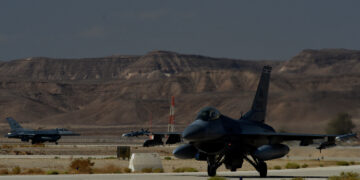October 19, 2023
As Middle East tensions rise, U.S. forces remain vulnerable
FOR IMMEDIATE RELEASE:
October 19, 2023
Contact: press@defensepriorities.org
WASHINGTON, DC—This evening, President Joe Biden is scheduled to deliver a speech discussing U.S. support for Israel in their war with Hamas. Defense Priorities Policy Director Benjamin H. Friedman issued the following statement in response:
“Recent attacks on U.S. forces in the Middle East should underline the urgency of removing troops from the region. The attacks—including drones targeting U.S. bases in Syria and Iraq, plus a U.S. naval vessel’s interception of missiles off Yemen’s coast—came from militias tied in some way to Iran. These incidents may be the result of increased tensions resulting from the war between Hamas and Israel.
“The United States has a duty to defend its forces. That includes asking what they are accomplishing and protecting them from needless danger. The war on ISIS was won long ago, and their scattered remnants are hunted by all regional powers. U.S. forces in Syria and Iraq thus have little to achieve, but are vulnerable to attack and are sources of potential escalation with Syria’s government, Iran, Russia, and even Turkey. The presence of U.S. troops in Syria, in other words, runs a major risk for no clear benefit to Americans.
“The terrible case for leaving these troops in place only got worse with the war in Israel. These forces are vulnerable to attacks from Shi’ite militias and other hostiles potentially motivated to attack by trouble starting in Israel. Even if U.S. forces go unharmed, their vulnerability is a source of coercive leverage for these groups and their Iranian sponsors. Removing U.S. forces from Syria and Iraq is not capitulation to any U.S. adversary, but a way to deny them an advantage. U.S. forces in the area now run a great risk of being a pathway to a war with Iran, rather than being a means to deter one.”
More on Middle East

By Jennifer Kavanagh and Dan Caldwell
July 9, 2025
Events on Middle East








